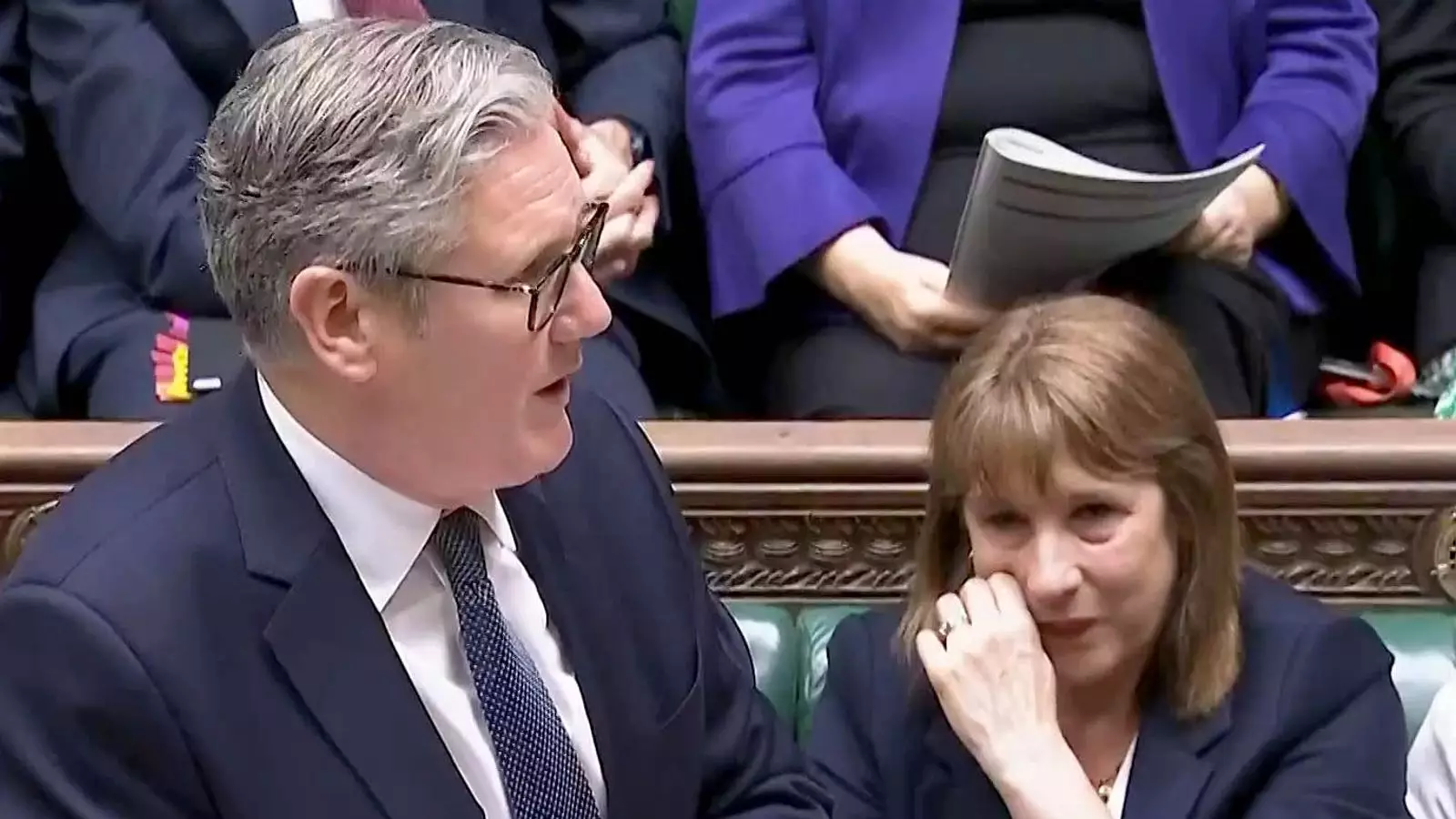In contemporary politics, stability often hinges on perception — perception of competence, unity, and unwavering resolve. Right now, the political landscape is marred by palpable uncertainty, as leadership faces relentless scrutiny and mounting dissatisfaction from within. This isn’t just about unpopular policies or fleeting media narratives; it’s about the core legitimacy of those at the helm. When senior figures internally voice warnings of impending leadership change, it signals a crisis of confidence that cannot be ignored. The idea that a prime minister might be ousted within months is not merely hyperbolic; it’s a stark reflection of a government teetering on the brink of collapse due to its inability to inspire trust and deliver results.
What stands out most is the growing disconnect between leadership and the grassroots? The fury from party insiders and political allies reveals deep-seated frustrations. This underlying unrest isn’t a transient thing; it’s symptomatic of broader systemic weaknesses. Trust erodes quickly in times of ineffective governance, and when key ministers suggest that a change of leadership could be imminent, it’s a clear red flag for the entire nation’s political health. The elite’s narrative of stability appears increasingly vulnerable when those closest to power openly hint at upheaval. It is a testament to how precarious genuine authority has become in such turbulent times.
The Erosion of Credibility and the Rise of Alternative Forces
As the established parties falter, new political currents threaten to reshape the landscape entirely. The surge of Reform UK in Wales and the increasing influence of left-wing groups such as the Greens in London represent more than mere electoral fluctuations—they embody a crisis of ideological confidence within the traditional centre-left bloc. Such shifts reveal an electorate that’s frustrated, disillusioned, and seeking alternatives outside the stale confines of established party politics. Instead of inspiring hope, the government’s inability to adapt or address pressing issues fosters a fertile ground for fringe narratives and populist movements to flourish.
This fragmentation doesn’t only risk electoral losses; it fundamentally questions the legitimacy of conventional political processes. If voters perceive their existing choices as ineffective or disconnected from their realities, they will look elsewhere, sometimes to populism or radicalism. The fact that these new forces are gaining ground amidst leadership turmoil underscores a critical need for political renewal—an acknowledgment that the current model has failed to deliver stability or trust. Without strategic reform, the political pendulum may swing further to the extremes, leaving a center-left liberalism caught in a relentless struggle to reclaim its credibility amid chaos.
The Personal and Political: The Weight of Leadership in Crisis
Amidst the chaos, individual personalities and their reactions expose the emotional toll of political crises. The visible upset of Rachel Reeves during Prime Minister’s Questions is more than just a personal moment; it symbolizes the immense pressure that modern politicians endure. Leaders now operate under a microscope that magnifies their every weakness, mistake, or emotional outpouring. The claim that her tears were unrelated to political turmoil ignores the broader context: the immense stress of making pivotal, often unpopular decisions that ripple through the economy and society.
Prime Minister’s unwavering support for Reeves, despite setbacks, underscores the perception that loyalty and unity are seen as vital shields against external volatility. Yet, emotional vulnerabilities expose the fragile human side of politics that often gets overshadowed by rhetoric. If even the most seasoned politicians crack under pressure, it raises questions about the sustainability of their leadership models. Nonetheless, such moments can serve as catalysts for introspection and reform. Politicians must acknowledge their humanity—embracing transparency and empathy could be the difference between leading through crisis or succumbing to it.
The Cost of Leadership in Uncertain Times
Economic indicators—such as the market’s reaction to Reeves’s emotional display—highlight how politics and economics are inextricably linked. When markets react negatively to perceived political instability, it signals a lack of confidence that can translate into long-term economic consequences. The sharp falls in pound value and bonds are not mere numbers; they are cries of concern from investors and international observers who question whether leadership can stabilize the nation’s financial trajectory.
Leaders, especially those committed to reform and progress, must contend with the reality that their personal resilience and public trust are crucial to economic stability. The management of political crises, therefore, isn’t just about holding onto power but about safeguarding the country’s future economic well-being. This requires a nuanced, centrist approach—balancing pragmatic policies with empathetic leadership—rather than succumbing to partisan dogmatism or populist swings. The challenge lies in rebuilding trust not just within the party but also with the public, fostering a sense of confidence that can withstand turbulent times.
In the end, the current political upheaval underscores a fundamental truth: effective leadership in uncertain times demands more than strategic messaging; it demands authenticity, internal cohesion, and a clear vision for renewal. Without these, the legitimacy of those in power remains fragile, and the risk of further destabilization grows ever more imminent.

